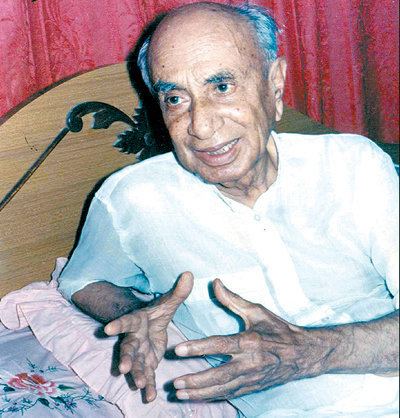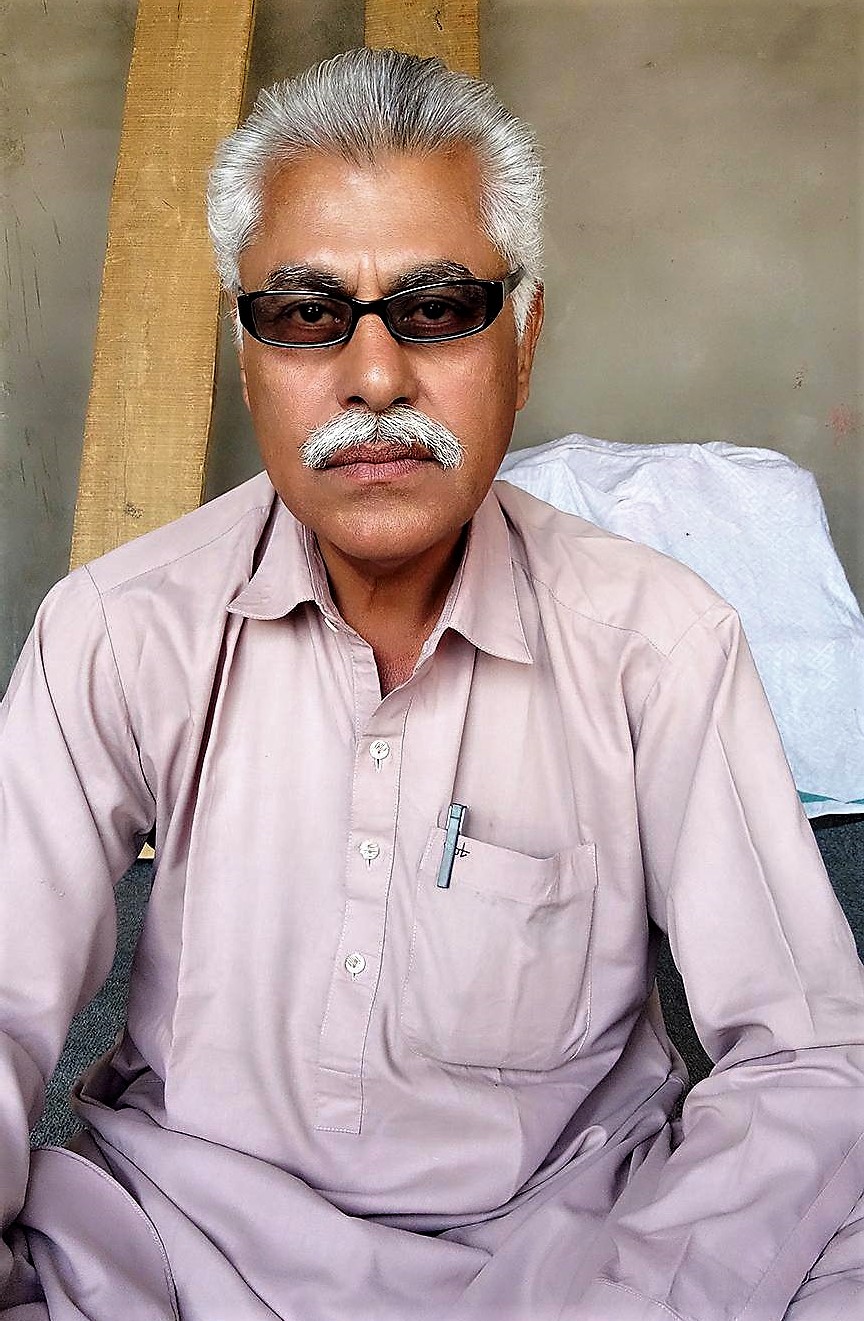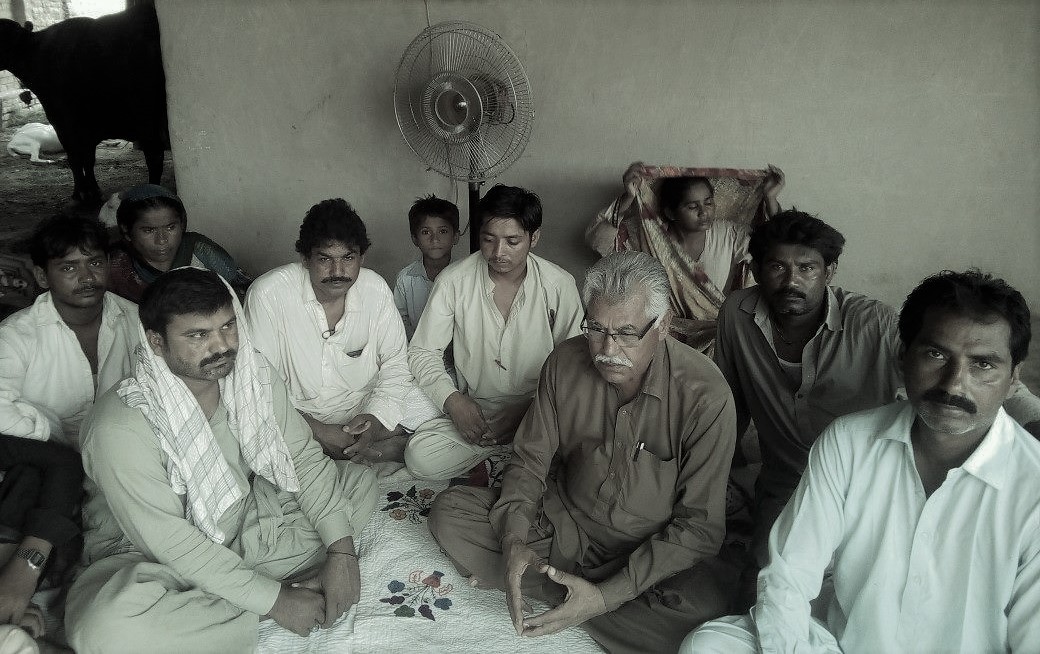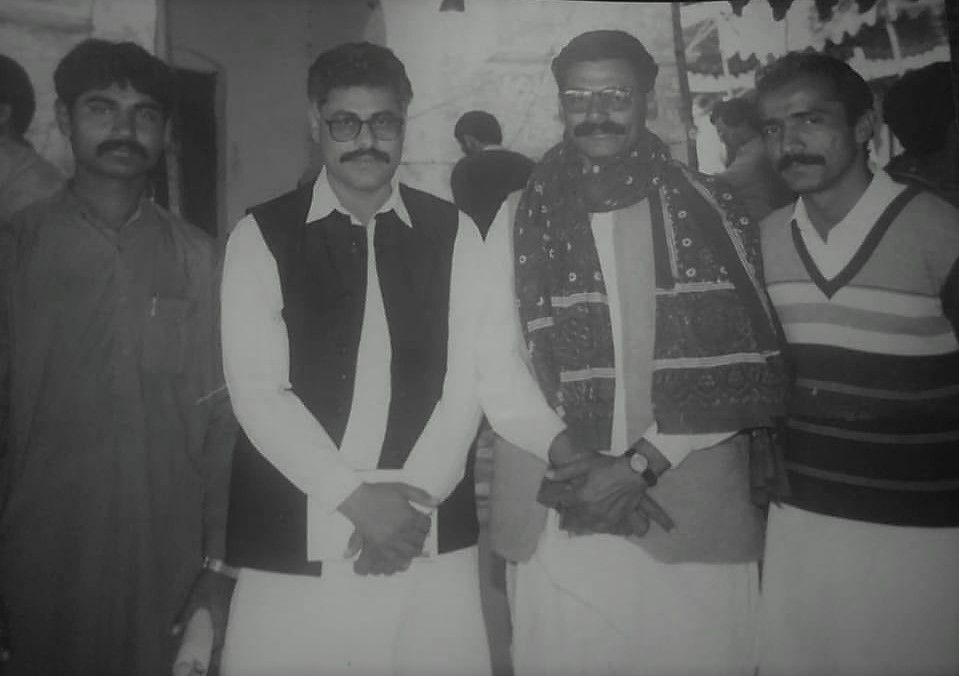
G. M. Syed’s equal serving to all
[Author’s Note: Will and Ariel Durant’s book – The Story of Civilization’s first volume appeared in 1935 and a complete set of eleven volumes was published in 1975. The authors took more than four decades to complete the manuscript. The readers well received the book. Therefore, their presence was sought in radio shows and press briefings. Will Durant has mentioned in one of his interviews that most common question around the globe was: ‘what is most important in human civilization, Intelligence, health or character? Will Durant responded the question that first comes the character, then health, and in the last – intelligence. I believe so, and it is still relevant in all walks of life.
I am of the view that in Sindh’s politics Mr. GM Syed, the nationalist leader and founder of Jeay Sindh Movement, was the powerhouse of ideas, and torchbearer of morality. Let me not shy, and state that he was the only politician, who practiced his ethos across the board, irrespective of political differences, power, age, class, and gender. I had been pondering over to document Jeay Sindh workers’ personal encounters with GM Syed. The present note was narrated to this scribe by Mr. Hashim Khoso. He has been associated with Jeay Sindh Mahaz. Presently, he is vice-chairman of Jeay Sindh Mahaz. This is eleventh article of the series.]
Dr. Zaffar Junejo
Sindhi society practices various cultural traits. At one level, it is claimed that Sindhi society by and large is a willing host and affable nation. On the other, its operative manners are very selective and class consciousness: a same host treats Pir, Syed, Zaminadr and Hari in different ways. The welcoming words, reception and even cooked items are carefully selected, and hosts’ choice validates status and power of the guest. Generally, Sindhologists believed that with education, new types employment and common men’s participation in the political process would dilute it.
 But, over the period, with some gaps the class-conscious-behavior resurged. The lead role was played by the ideology of Muslim League, group politics (Syed and Baloch groups), and the patterns’ settlements: Sindhi villages are based on surname or community. On the other hand externalities such as Muslim Leagues ideas of Pan-Islamism, Punjab’s aggressive attitude to grab Sindh’s resources through imposing emergences, the Martial Laws and One-Unit Scheme have inculcated unethical opportunism, non-committal conduct and political culture in Sindh. The long lasting impact was Zulifkar Ali Bhutto’s representative-democracy’s poor strategic role, i.e., induction of Islamic ideas in politics. However, General Zia’s Islamization promoted culture of Sardari, fanaticism, violence, and drugs.
But, over the period, with some gaps the class-conscious-behavior resurged. The lead role was played by the ideology of Muslim League, group politics (Syed and Baloch groups), and the patterns’ settlements: Sindhi villages are based on surname or community. On the other hand externalities such as Muslim Leagues ideas of Pan-Islamism, Punjab’s aggressive attitude to grab Sindh’s resources through imposing emergences, the Martial Laws and One-Unit Scheme have inculcated unethical opportunism, non-committal conduct and political culture in Sindh. The long lasting impact was Zulifkar Ali Bhutto’s representative-democracy’s poor strategic role, i.e., induction of Islamic ideas in politics. However, General Zia’s Islamization promoted culture of Sardari, fanaticism, violence, and drugs.
Resultantly, Sindhi society was conditioned to behave, dress, and engage in style of decadence culture – neo-tribal-landlord-culture. One noticeable window was the hosts’ attitude towards the guests. However, such power-toed practice was never practiced at Otaq by G. M. Syed. There were two unbreakable traditions at his Dastarkhwan – the same food would be served to all seated guests, and G. M. Syed would also join them. It was a rare practice in Sindh’s upper class. In this regard Hashim Khoso shared an anecdote. Although he was not sure about the exact year but he stated that it was 1991/92.
He recalls:
One day, Mumtaz Bhutto came to Sann. He was flanked by his bodyguards. It was midday, and Saeen G. M. Syed hosted lunch for him. Mumtaz Bhutto reached as per schedule and exchanged political views with Saeen G. M. Syed. Soon, the lunch was served, all people were invited. It was served on the floor, and a cloth (Dastarkhwan) was spread. Immediately, Saeen noticed the absence of Mumtaz Bhutto’s driver and bodyguards. Then and there he asked Master Ghulam Qadir to call them. He went to a nearby room, and came back. Saeen instructed him again to call them, but he acted same way.

According to Hashim Khoso, Saeen G. M. Syed was anxiously waiting for them to join the lunch. Again, he reminded the Master. Now, the Master played a trick, and told that he has already served them.

On my enquiry, Hashim Khoso told that till that time, Saeen didn’t take a single morsel, and all were waiting. Afterwards, Saeen handed a plate to his guest as a traditional gesture. After taking lunch, Mumtaz Bhutto took leave.
After departure of Mumtaz Bhutto, Master Ghulam Qadir, in a joyful mood, said to Saeen G. M. Syed: ‘sometimes you cross the traditional sensitivities of Sardari and Zamindari system. How the servants of Mumtaz Bhutto could eat with him on the same serving table’. The Master finished his sentence, ‘all are not G. M. Syed, who treats us equally.’
[author title=”Dr. Zaffar Junejo” image=”https://sindhcourier.com/wp-content/uploads/2021/11/Dr.-Zaffar-Junejo-Sindh-Courier.jpg”]Dr. Zaffar Junejo has a Ph.D. in History from the University of Malaya. He is freelance writer and his areas of interest are post-colonial history, social history and peasants’ history.[/author]
Click here for Part-I, Part-II, Part-III, Part-IV , Part-V, Part-VI,
Part-VII, Part-VIII, Part-IX, Part-X